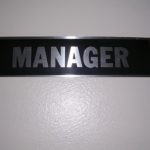Adaptive workplaces essential for digital era
The nature of how business is conducted and the way employees interact with staff has changed significantly over the last five years. TalentFlow’s Chris Stevens says it’s time to embrace a recruitment approach which supports an adaptive workplace and the digital era.
In a world of rapid and disruptive change the key to a thriving organisation must be an ability to continuously adapt to best align with the world it serves.
The argument here is that failure to do so means the organisation becomes progressively (and often rapidly) less relevant to the needs of its customers. Couple this with the ever decreasing barriers to compete, and we have an exponential effect on the ‘success versus failure’ equation for businesses.
Looking at many well established organisations today, they are a long way from being described as adaptive. Lengthy timeframes between strategy setting to delivering actual outcomes means that by the time the change is delivered, the opportunity or need has likely changed and therefore the results are insufficient.
Decision frameworks in many companies follow a hierarchical approach and aside from being inefficient, often result in employees feeling disempowered through onerous steps and superfluous documents. I often say, this causes people to “check their brain at the door”.
Add to this, an archaic workforce services model which is littered with fragmented services; change management, outplacement, career services and of course recruitment. The piecemeal approach is far from seamlessly integrated and is a high cost approach to workforce change, especially when you add them together. People are the lifeblood of any organisation. People have the power to think, assess, influence, plan, create and make change. ‘Big bang’ restructures, which have become the norm, create a high level of personal impact to those being transitioned out and those who are retained.
It’s time to let go of a 40 year old workforce approach which was set to support an industrialised era and embrace one which supports the digital era. This means letting go of the notion that jobs are permanent and that we need to be employed by a single employer who in return for our efforts will support our lifestyle with an ongoing paycheque and benefits. Instead, we need to replace the thinking with employers and individuals who are two equals in the creation of value.
Employers need people whose skills can solve problems and create new value. Individuals need employers who will leverage their skills, enable personal growth through challenge, compensate them fairly and recognise individual lifestyle needs.
In effect, individuals become a “business of one” and are able to trade on their skills in a more fluid skills market. Disruptive restructures are replaced with a continuous delivery approach (already used in the software industry) whereby incremental non-disruptive workforce adjustments are made ongoing to ensure the capability, capacity and culture of a workforce remain optimally aligned to the organisations strategy objectives and real word dynamics.
The adaptive workforce is essential for organisations to remain relevant and thrive. It’s also essential for individuals who now need to build their careers in a world of continuous disruption. Australia needs citizens to be productively employed. This is needed to create economic value to support growth and sustainability of the great lifestyle we’ve built from the previous era.
Chris Stevens is the managing director of recruitment agency TalentFlow. In a career spanning 30 years, Chris has held senior technology and business leadership roles for some of Australia’s most iconic brands. These include Sensis, Westpac, ANZ Bank, Vanguard Investments and MYOB. Along with various consulting roles, Chris has helped both large and small businesses compete ‘online’ through leveraging people, technology and performance driven practices. In a disruptive digital age, Chris is able to bring this wide range of experience together to help clients win in their businesses.




Brian Donovan
November 21, 2013 at 10:29 am
Good piece Chris! It’s time
Good piece Chris! It’s time to rethink the employment model to keep pace with technology change.